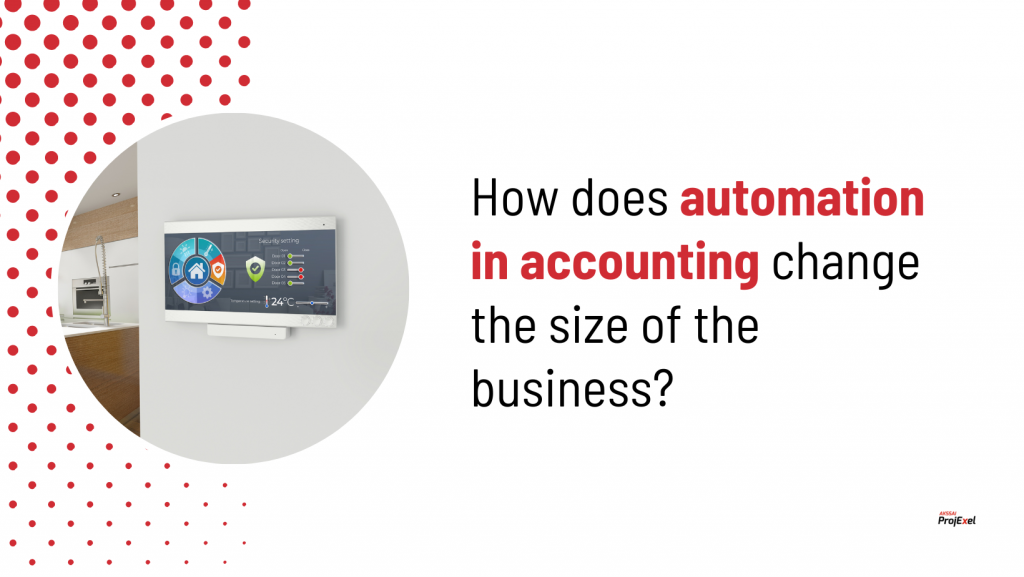Introduction – Automation in accounting
The field of accounting and finance has been ever-evolving. It is mainly because of its diversity and its connection with everyday happenings. Technology is dynamic and prone to introduce different changes in accounting and finance. The advancements have been beneficial for businesses in the long run. The challenges are many and so are the growth opportunities. So, the businesses have a competitive edge by investing in such things.
Automation is doing rounds to a great extent right now. Its amalgamation with the accounting and financial concepts is expanding the horizons of finance professionals. It puts them in an efficient position that is much better than what history had in store for them.
So, let’s understand the concept of automation in the field of accounting.
In simple terms, the concept refers to reducing the manual stress and converting the same for automatic working. In other words, it is recognized as the adoption of computerized accounting software that minimizes the number puzzle by giving it a technological touch.
This is either rocket science or anything new or challenging. Computerized accounting has been in the market for quite some time. It has been helping businesses for at least two centuries. It has the following benefits for various companies:
- Reducing human labour.
- Saves time.
- Saves money, investment, and resources.
You’ll easily spot that many factors tend to get affected by the introduction of innovation globally. Accounting is prone to factors that affect it on a negative note. But, the case is different when it comes to automation. From avoiding the tedious tasks that many CAs and CFAs have to do, here are some ways how automation affects businesses and its shape for the better.
Time saved
The most tangible benefit of automation is the amount of time it saves. If someone or something else does the manual work you’d typically do, you’re going to have more time on your hands.
For accountants, the enormous time-saver comes during financial closing. If your team has been using its tools correctly, there shouldn’t be anything to reconcile! Most of the data you’d usually check and copy across systems has already been reviewed and copied.
Documents (like receipts) are also included, leaving you with a complete exit from the start. It then literally takes a click to export this for the benefit of any business and its related service lines – and all other expense claims – to your accounting and reporting tools. So what usually takes days or weeks can be done in minutes.
Higher productivity
An obvious result of the time savings above is producing more in the same period.
This likely means fewer billable hours for external accountants, which may be frightening. Businesses can function well if they are able to reduce their investments and development costs. Reducing the cost expenditure will help them improve both the quality and quantity of the outcomes. This way there is no shortage followed by a smooth functioning of the demand and supply chain mechanism of the global market businesses.
Data accuracy
We all know the expression that to err is to be human. People are well known for making mistakes.
The beauty of machines is that they don’t often commit minor computing errors. Accounting tools can create thousands of ledger entries in seconds, with no real risk of mishandling data.
Of course, this still gives rise to the question related to the need a good accountant to verify the work and manipulate that data, but more on this shortly.
Fast data retrieval
Some accountants will remember the not-so-long-ago days of physical storage rooms full of hundreds of files. To retrieve a document or review a file belonging to any business or any business line, you had to go hunting for it in another room. Sometimes, the business or any data files weren’t even in the same building!
It’s now straightforward to find virtually any file you need in seconds. Any entry in your accounting software for the business can be found almost instantly.
Accounting automation is designed to make documents and ledger items easy to categorize, name, and store safely, making finding them a breeze.
Secure file storage
Another significant burden on companies and accountancy firms is storing paper records for 7-10 years (depending on local regulations). Thankfully, government tax offices worldwide are slowly getting on board with e-receipt storage – digital copies of documents instead of paper files.
Conclusion
Automation for the accounting field has a lot of scope of betterment for businesses. Businesses have ample opportunities, followed by a better hand at investments and amalgamations for the upcoming times.

